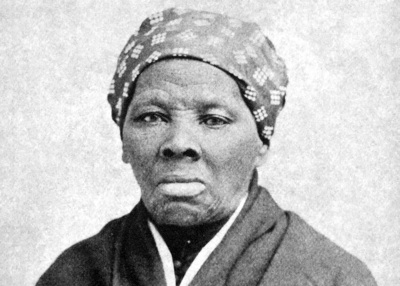Harriet Tubman was a union army nurse
The month of May is probably the most celebrated month of the year. The list of celebrations that reflects a very busy calendar include Memorial Day, Mother’s Day, Armed Forces Day, the Kentucky Derby on the first Saturday in May, and Cinco de Mayo.
That’s not all. May is also for celebrating our nurses.
In 1982 the US Congress designated the May 6 as National Nurses Day but it actually goes back to an October 1954 week-long celebration to mark the 100th anniversary of the queen of nurses, Florence Nightingale, whose service during the Crimean War is legendary. That’s the same peninsula recently seized by Russia.
I have great affection and admiration for nurses. My mother was an RN and an aunt who was also an RN and rose to be head of Interboro General Hospital’s Nursery in Brooklyn where I worked for sometime as a medical lab technician. Both were active for 45 years in the career they loved.
The nursing pledge – their personal mission statement, much of which has been reworded to reflect the evolving nature of the profession, provides insight into the purpose, the high calling, and the high standard to which nurses are held. A standard that today demands much more of them than at any previous time.
The pledge, although attributed to Florence Nightingale, is actually the product of a Detroit nurses training school in the 1890’s. It says: I solemnly pledge myself before God and presence of this assembly to pass my life in purity and to practice my profession faithfully. I will abstain from whatever is deleterious and mischievous and will not take or knowingly administer any harmful drug.
I will do all in my power to maintain and elevate the standard of my profession and will hold in confidence all personal matters committed to my keeping and family affairs coming to my knowledge in the practice of my calling. With loyalty will I endeavor to aid the physician in his work, and devote myself to the welfare of those committed to my care.
One of the little known facts regarding the history of nursing is that while Florence Nightingale was serving the soldiers of the Crimean War in the 1850’s, Harriett Tubman, a slave who engineered the Underground Railroad that afforded freedom for hundreds of slaves, served as a nurse during the exact period of Nightingale’s service. Tubman worked for the Union Army as a nurse using her knowledge of folk medicine to bring relief to the soldiers suffering from dysentery. She learned this during her years living as a slave in Maryland.
Nursing has been influenced recently by the attention given medical errors and trans-cultural care. Medication administration is, conceivably, the second most important process after diagnosis that a nurse needs to master. The skill necessary to deliver this service effectively is due in part to the increase in complexity of patient care needs, the significant role that technology plays in delivering care, and the impact of multiple tasks on managing a nurse’s time.
Clinically, a medication error is described as a deviation from the physician’s charted order. However, it is omission that is regarded as the most common error – the nurse did not comply with the order and not incorrect dosage as the public might believe because of the notoriety usually associated with mal practice cases.
Last November 2012 a study of 10 North Carolina hospitals published in The New England Journal of Medicine found that 18% of patients were harmed by medical care. In a small but significant number of cases (2.4%), the errors had a part in the patient’s death. A recent report by the Department of Health and Human Services Office of Inspector General (OIG) reported that 28% of all errors in the North Carolina hospitals were medication errors.
Today, every interaction with a patient in a hospital creates the potential for error and it is the pharmacy where a major portion of that risk resides. Additionally, the majority of the medication errors are more likely to occur during physician ordering (74%), order transcription, and nurse administration. However, reassuringly, research also reports that the profession most likely to detect and intercept an error is nursing (86%), as compared to pharmacy. Once again the value of well trained nurses is indispensable to the reduction of medical errors and the improvement in care quality in hospitals.
Nurses who speak a language other than English are invaluable. Because nurses have a high level of interaction with patients, those who are capable of gaining the confidence of patients with healthcare beliefs that derive from a non Western healthcare experience, facilitate the desired outcomes related to the medical protocols that are prescribed. When there is adherence to the medical protocols because the nurse was respectful of the patient’s beliefs, and is skilled at negotiating patient compliance, this reduces healthcare disparity. It’s a skill increasingly demanded of nurses.
So, the next time you are on the receiving end of care from nurses, and particularly during the month of May, eagerly express your appreciation for the work they perform – its complexity and challenges, knowing that their preparation and ongoing professionalism is very demanding and they consistently have your best interest at heart.
James Z. Daniels has written on military nursing, Caribbean Politics, cultural healthcare and business. He resides in Durham, NC and can be reached at [email protected]












